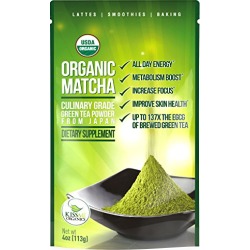True or False
Beetroot powder vs. whole beets
Beetroot powder has the same amount of fiber per serving as a whole beet.
True. However; this depends on the brand. Because beetroot powder is a supplement, the purity of the product may not be created equal due to lack of FDA regulations. When you are looking for the best beetroot powder, aim for at least 2 grams of fiber per serving (generally 2 tsp-1 Tbsp powder). Try adding the powder to smoothies, baked goods, pasta sauces, salad dressing, dips, and soups.
Activated charcoal for detox diets
Activated charcoal is a healthy and safe way to remove toxins from your body.
False. The use of activated charcoal is most commonly reserved for emergency treatment of severe poisonings. The administration of activated charcoal causes the charcoal to bind to chemicals, foods, drugs, and nutrients in the stomach to prevent being absorbed into the body. In other words, if you are taking this for a healthy diet detox and consuming with healthy food, these healthy nutrients will also not be absorbed. This not only prevents the absorption of the good nutrients that your body needs, but excessive intake can increase your risk of constipation or diarrhea, black stools, or dehydration. Stick to a plant-based diet with an emphasis on fruits and vegetables for the best long-term “detox” diet.
Spirulina
Spirulina is one of the few foods on the planet with a naturally high content of the healthy omega 6 fatty acid, gamma linoleic acid (GLA).
True. Spirulina is a green-blue algae powder that can be added to foods or taken as a pill supplement. Although it is safe to consume for adults, the algae flavor may turn most away. But what it lacks in flavor, it makes up in nutrient composition. Spirulina is packed with protein, vitamin A and K, iron, potassium, GLA, and other antioxidants, such as phycocyanin and zeaxanthin. Preliminary and mostly animal-based studies show promising potential health benefits, such as boosting the immune system, preventing infection and allergic reactions, anticancer properties, and improving liver and eye health. More research is needed to determine the exact impact spirulina has on overall health.
Matcha green tea powder
 |
Matcha Green Tea Powder 4oz - Organic Vegan Milky Taste |
True. Matcha green tea uses the whole tea leaf and grinds it into a powder. This powder is then mixed in with hot water for a frothy tea beverage, ultimately allowing you to consume whole tea leaves. On the other hand, general consumption of regular green tea is the infused water from the leaves instead of whole tea leaf consumption. Matcha green tea leaves grow in shaded areas potentially increasing the chlorophyll content. Matcha green tea also contains l-theanine and epigallocatechin gallate (EGCG), which have antioxidant properties, help fight inflammation in the body, and may improve alertness. Due to lack of scientific evidence specific to matcha green tea, there is no clear indication to drink matcha green tea over regular green tea. Try using in lattes, smoothies, and sweet or savory sauces. It is not recommended to drink more than 2 cups of matcha green tea daily due to its nutrient concentration.

No comments:
Post a Comment